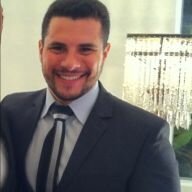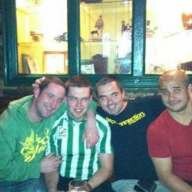 history | 2015-05-02
history | 2015-05-02
The Brazilians of FC Barcelona - Part Two
The genius of Romário and Ronaldo
Aloisio Pires Alves
Following the departure of Cléo, Barça went six years without a Brazilian player in the team. This ended when Aloisio Pires Alves, a defender who came from Internacional, played for the club from 1988 until 1990, namely the era just before the rise of Cruyff’s Dream Team. He wasn’t an undisputed starter, but he did play quite frequently and won the 1990 Copa del Rey. He lost his place in the team with the arrival of Koeman and he eventually left for FC Porto, where he had a successful career.
Shorty
Romario Faria da Souza, the great “Shorty”, arrived at the Catalan club from PSV Eindhoven in the 1993-94 season and remained there until halfway through the 1994-95 season.
“The Genius of the Box”, as Cruyff nicknamed him, began his life at the club in the best way possible: Fourteen goals in his first eight games, which included friendlies. He played in the era of the Dream Team and since clubs weren’t allowed to field more than three foreign players at a time, he was rotated with Koeman, Laudrup, and Stoichkov.
In his first full season at the club, he scored 30 goals in La Liga, the exact number of goals he promised he would score for the blaugrana. Ten of those goals were assisted by Pep Guardiola. A controversial figure who never hid his love for parties and women, he placed several bets with Cruyff. It was always the same: If he scored two goals or more, he would get a few days off so that he could go to Rio de Janeiro to go to all the parties and have all the women he wanted.
In one particular match, he scored two goals in 20 minutes then made his way to the technical area where he reminded Cruyff, “Boss, take me off, my plane leaves for Rio de Janeiro in an hour.” Cruyff kept his word and he released the bohemian striker, who, later on, analyzed his career in the following way: “I was never an athlete. If I had concentrated more during my career and worked harder, I would have scored more goals, yes, but I wouldn’t have been as happy as I currently am.”
After the 1994 World Cup, where he led the Brazilian national team to its fourth World Cup after a 24-year-drought, Romario returned to Barcelona a changed man. His friend, Hristo Stoichkov, said that “He never came back after the World Cup. His body was here, in Barcelona, but his mind was always in Brazil.”
He was the first Brazilian to be named FIFA World Player of the Year. Additionally, he was the first Brazilian to win the prize while playing for FC Barcelona, a feat that would later be repeated by Ronaldo, Rivaldo, and Ronaldinho.
Romario forced his departure from Barça and went to Flamengo, in the Rio de Janeiro club’s centenary year. He scored 53 goals in 84 games with Barcelona and will always be remembered for the wonderful goal that he scored against Real Madrid in the 1993-94 season, when the team won 5-0, with Shorty scoring a hat-trick. He was also the scourge of Atletico de Madrid, scoring a hat-trick against them in each of the league games.
His last memorable game with the Barcelona shirt was against Manchester United, in the Champions League. He scored twice in a 4-0 victory and was praised by Sir Alex Ferguson particularly for his speed and intelligence.
He only won two titles with Barcelona, both in 1994: La Liga and the Spanish Super Cup. He played in the fateful Champions League final in Athens and many people attribute the humiliating 4-0 loss to Capello’s side to the presence of Romario who, besides not doing much on the day, prevented Laudrup from starting, as per the rule for foreign players.
Romario finished his career with more than 1,000 goals. Nowadays, he is a politician in Brazil, where he represents the state of Rio de Janeiro and fights for the rights of persons with disabilities and against the Brazilian Football Confederation.
The Santos Messiah
Giovanni Silva de Oliveira, the “Messiah”, stood out at Santos, primarily in the 1995 Brazilian championship, where he ensured their miraculous qualification for the final after turning around a 4-1 defeat in the first leg of the semifinal against Fluminense. Giovanni scored two goals and assisted the other three, guaranteeing that, after many years, Pelé’s team was back in the final.
Giovanni played for Barcelona from 1996 until 1999, as a member of an excellent team managed by Sir Bobby Robson. He lost his place in the team with the arrival of Van Gaal, especially in his last season in which he scored just two goals. He left the club in 1999 and he accused the Dutch manager of being the team’s “Hitler for Brazilians”. Even so, he was a great champion in a victorious era for the Catalan team, winning two La Ligas (1998 and 1999), two Copas del Rey (1997 and 1998), and one Spanish Super Cup (1997).
The Phenomenon
One of the most naturally-gifted players in football history wore the colors of FC Barcelona for just one season, but in that single season (1996-97), Ronaldo Luís Nazário de Lima marked an era for the Catalan team.
Coming from the Dutch team, PSV Eindhoven, where he scored an impressive 42 goals in 46 games, Ronaldo arrived in the team with team manager Robson, who could already count on stars like Luis Enrique, Guardiola, and Geovanni. He scored 47 goals in 51 games and, and until the 2011-12 season, was Barcelona’s highest goalscorer in a single edition of La Liga with 34 goals in 34 games. It wasn’t until the emergence of Leo Messi, with his scarcely-believable tally of 50 goals in 36 games, that the-boy-from-Rio’s figure was beaten.
Ronaldo won one Copa del Rey and the European and Spanish Super Cups. Regrettably, a disagreement between the Brazilian Phenomenon’s agents and the Catalan club’s board made his contract renewal impossible. President Núñez refused to increase his salary. In a similar situation to that of Luis Suárez in the 1960s, Ronaldo also left the club for Inter Milan.
Before that, he was elected FIFA World Player of the Year in both 1996 and 1997, making him the second Brazilian to win the prize in their time at Barcelona. Later, he became a hero at Real Madrid and, today, when asked what his favourite team is, he says that he considers himself more madridista than culé. And, just as had previously happened with Evaristo de Macedo, especially since he didn’t go directly from Barça to Madrid, he is adored by both sets of fans.
Read the first part of this series: The Brazilians of FC Barcelona - Part One










